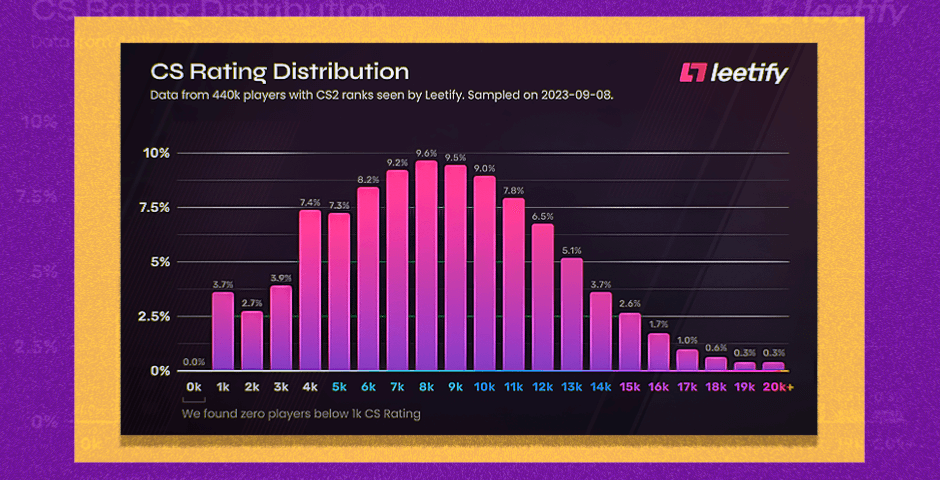Black Tube Sex Hub
Exploring the world of adult entertainment and erotic content.
CS2 Matchmaking Ranks: Are We Just Playing a Game of Chance?
Discover the truth behind CS2 matchmaking ranks! Are we really just at the mercy of chance? Dive in to find out!
Understanding CS2 Matchmaking Ranks: Skill or Luck?
The competitive landscape of CS2 matchmaking ranks has been a topic of much debate among players. Understanding whether success in this system is determined by skill or luck can influence how players approach the game. Many suggest that while individual abilities and teamwork play a crucial role in achieving higher ranks, the outcome of matches can sometimes be swayed by unpredictable factors. For instance, random player skill levels, connectivity issues, or occasional matchmaking imbalances can impact a player's overall experience and rank progression.
When discussing CS2 matchmaking ranks, it's important to consider both aspects: skill and luck.
- Skill: Players who invest time in mastering game mechanics, strategies, and teamwork often see consistent success.
- Luck: On the other hand, factors such as unpredictable teammates or opponents can introduce an element of chance that could tilt the outcome of a match.

Counter-Strike is a popular first-person shooter that has evolved over the years, captivating players with its intense gameplay and competitive scene. One of the most exciting aspects of the game is the CS2 Gunfights, where players engage in tactical battles to outsmart their opponents. The strategic depth and teamwork required make it a thrilling experience for gamers around the world.
The Role of Matchmaking Algorithms in CS2: Chance vs. Skill
The role of matchmaking algorithms in CS2 has sparked ongoing debate among players regarding the balance between chance and skill. Matchmaking systems are designed to create fair matches by pairing players of similar skill levels, but the algorithm's intricacies can introduce an element of unpredictability. While a player's rank and previous performance serve as primary metrics for matchmaking, factors such as latency and geographic location can skew the results, leading to matches that may feel unfair or unbalanced. As a result, players often find themselves questioning whether their victories are due to personal skill or mere fortune in the matchmaking process.
Moreover, the emergence of advanced matchmaking algorithms has led to a shift in how players perceive competitive integrity. In a game like CS2, where strategy and individual talent are crucial, understanding the split between chance and skill becomes increasingly vital. For instance, a player with a higher skill rating may find themselves matched against someone who has benefited from advantageous network conditions, creating a scenario where pure skill does not guarantee victory. Therefore, the challenge lies not only in honing one's abilities but also in adapting to the capabilities and quirks of the matchmaking system itself, raising the question: how much of a player's success is truly earned?
Do Higher Ranks Guarantee Better Team Performance in CS2?
In the world of competitive gaming, particularly in Counter-Strike 2 (CS2), players often believe that achieving higher ranks directly correlates with better team performance. While rank can be an indicator of individual skill and game knowledge, it doesn't always guarantee seamless collaboration amongst team members. Factors such as communication, strategy execution, and teamwork play critical roles in determining a team's overall effectiveness. A lower-ranked team composed of players who communicate well and understand each other's strengths and weaknesses may outperform a mismatched higher-ranked bunch where players play for personal glory rather than collective victory.
Moreover, the dynamics of CS2 rank can be misleading. A player may achieve a high rank due to a string of fortunate matches or exceptional individual performance, yet still lack the necessary skills to elevate their team’s performance in critical situations. It's important to recognize that while higher ranks can offer experience and game awareness, they do not automatically equate to better decision-making or synergy during matches. Therefore, focusing on team coordination and cultivating a strong chemistry among players can often yield more substantial results than simply chasing higher ranks. Ultimately, it’s the combination of individual skill and teamwork that determines a team's success in CS2.